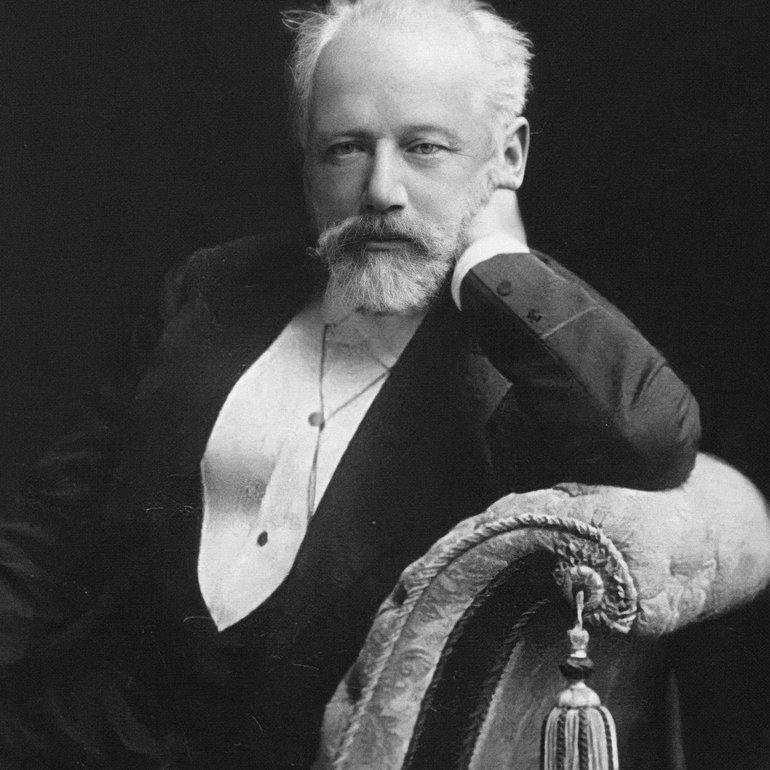
Pyotr Ilyich Tchaikovsky (1840-1893) Symphony No. 6 in B minor, Op. 74, “Pathétique” (1893)
The first thing one notices about the "Pathétique" symphony is that it was composed during the last year of Tchaikovsky's life. The first performance was in St. Petersburg, Russia, on October 28,1893. It was conducted by the composer who died nine days later at the age of 53. Whatever evidence was gathered, with regard to his untimely death, has long since been destroyed; so, his cause of death will likely remain a mystery. Officially, he died of cholera, though many believe that it was a suicide, either by his own choice or by pressure from the court of the Czar.
On his father's side, Pyotr Tchaikovsky was descended from a distinguished military family. They lived in the Russian city of Votkinsk some 800 miles to the east of St. Petersburg. His mother was of French and German ancestry and, when Pyotr was four she employed a French nanny. The boy became devoted to Fanny Durbach and was soon speaking French, German and his native Russian. Within two years he was excelling on the piano and composing little songs.
As music was not considered an employment option, at ten he was sent to St. Petersburg to study at the Imperial School of Jurisprudence, where he remained for the next nine years. There he fell in love with Sergey Kireyer. Their affair, according to Modest Tchaikovsky, the composer's brother, was the "purest" love of his life.
Upon graduation, the 19-year-old Pyotr landed a lowly job with the St. Petersburg Ministry of Justice. Although he kept that job for three years, luck was on his side because, the very year that he graduated, the Russian Musical Society was founded by Czar Alexander II's aunt with the stated purpose of fostering native talent.
The Russian Musical Society offered a variety of musical classes, which Tchaikovsky eagerly attended and, when the St. Petersburg Conservatory opened in 1864, he enrolled immediately. Graduating four years later, he was appointed music professor at the new Conservatory in Moscow. Unlike most of the other major Russian composers, who eschewed European musical norms in favor of indigenous folk tunes with octatonic scales, Pyotr aimed for compromise.
Tchaikovsky was 37 when he blundered into marriage with Antonina, an ex-student. Though the disastrous liaison lasted a mere three months, it left him a mental wreck. Fortunately, at almost the same time, his music had come to the attention of Nadezhda von Meck, a wealthy widow who, although they never met, became his generous patron, enabling him to travel widely while recovering his gay sanity.
The symphony which Maestra Sebrina Alfonso has chosen for today's South Florida Symphony Orchestra's concert is Tchaikovsky's last. He called it, "The Passionate Symphony," using the equivalent Russian word which the French then translated into "Pathetique." While the symphony may conjure up many disturbingly dark thoughts, the last adjective that comes to mind is "pathetic." Certainly, the first movement, starting with a bassoon adagio, creates a solemn mood. It is written in the traditional sonata form. The much-loved allegro second movement is sometimes described as a "limping waltz." The third movement is one of defiance, concluding with a triumphant coda. It begins with an exciting dialogue between strings and woodwinds. The clarinet introduces the secondary theme. The final movement, marked "Adagio lamentoso," speaks for itself.
Program note by A. Ian Fraser.